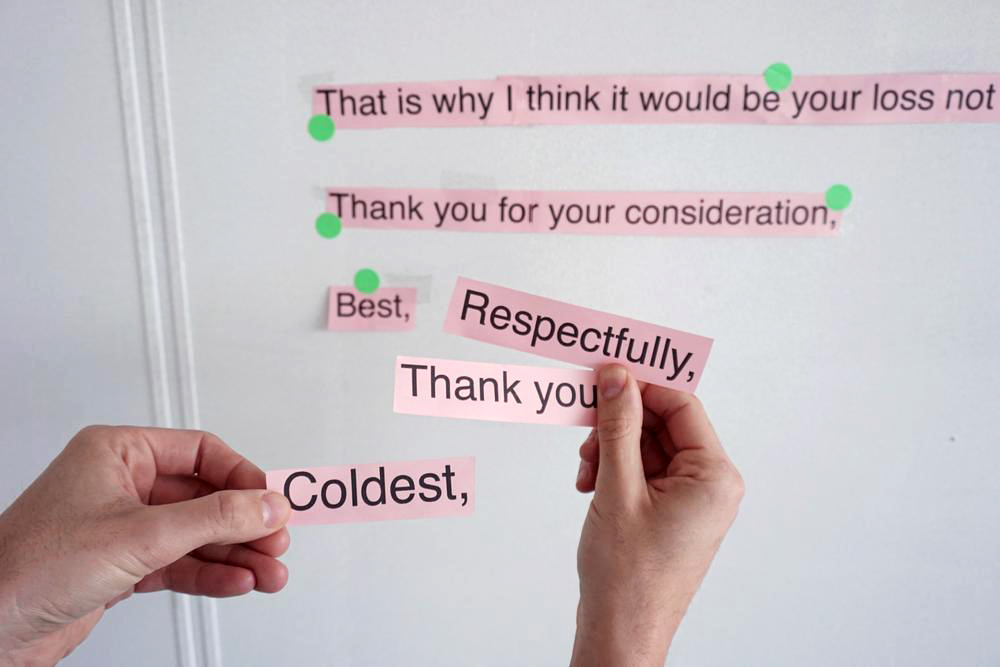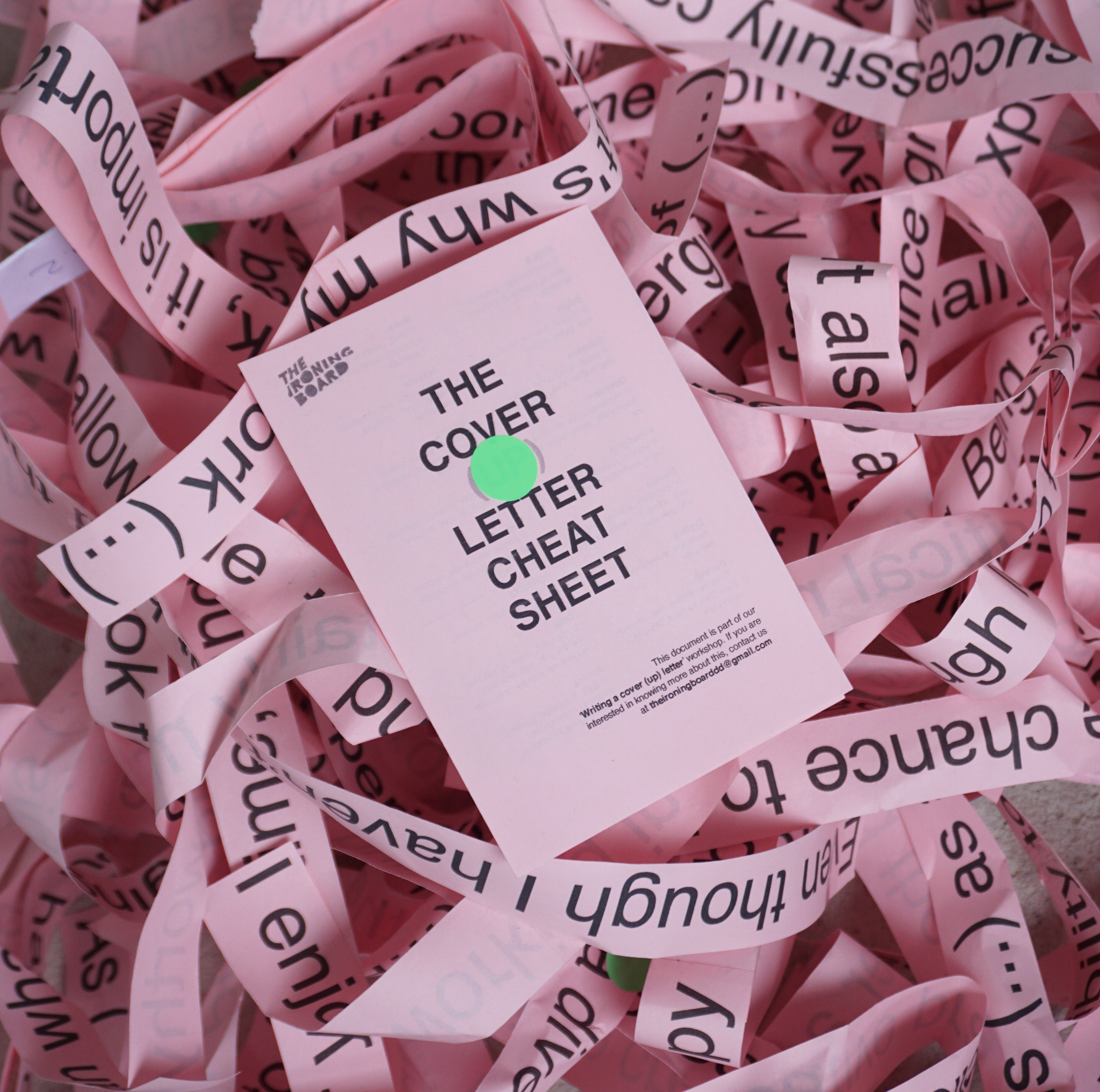Writing a cover (up) letter
Storytelling for application writing
Borrowing from our experience in improv, scriptwriting and, of course, application-sending, we have developed a workshop in which storytelling tropes and narrative devices are understood as tools to construct an application. Through this journey, participants practice their writing as much as their career-realisation skills, while also letting go of the so-called impostor syndrome that is often experienced in the creative field.
We set up this workshop thanks to the support of WORM Rotterdam, where we were first able to implement it on location. Following the encouraging feedback we have received from the workshop participants, we have expanded and adapted the workshop to other environments such as the designLAB department at Gerrit Rietveld Academie.
Our understanding is that cover letters—as much as the other exchanges that happen within an application process—contain a great deal of communicative conventions, and that these conventions could also be observed as storytelling tropes and narrative devices with which we create an image about ourselves, and our interest towards a certain institution, vacancy or programme. ‘Who we are’ and ‘what we work on’ aligns with what we present in our application, yet there is always something that evades that overlap, an area where one can speculate and make space for diverse narratives. Once we acknowledge the use of fiction in these letters, we reclaim the power to play with how we perceive our practice, ultimately being able to draft an application that is uniquely ours.
If you would like to inquiry about our workshops, contact us at theironingboarddd@gmail.com
Gerrit Rietveld Academie (Amsterdam),
WORM (Rotterdam), other locations
2023—ongoing
Storytelling for application writing
Borrowing from our experience in improv, scriptwriting and, of course, application-sending, we have developed a workshop in which storytelling tropes and narrative devices are understood as tools to construct an application. Through this journey, participants practice their writing as much as their career-realisation skills, while also letting go of the so-called impostor syndrome that is often experienced in the creative field.
We set up this workshop thanks to the support of WORM Rotterdam, where we were first able to implement it on location. Following the encouraging feedback we have received from the workshop participants, we have expanded and adapted the workshop to other environments such as the designLAB department at Gerrit Rietveld Academie.
Our understanding is that cover letters—as much as the other exchanges that happen within an application process—contain a great deal of communicative conventions, and that these conventions could also be observed as storytelling tropes and narrative devices with which we create an image about ourselves, and our interest towards a certain institution, vacancy or programme. ‘Who we are’ and ‘what we work on’ aligns with what we present in our application, yet there is always something that evades that overlap, an area where one can speculate and make space for diverse narratives. Once we acknowledge the use of fiction in these letters, we reclaim the power to play with how we perceive our practice, ultimately being able to draft an application that is uniquely ours.
If you would like to inquiry about our workshops, contact us at theironingboarddd@gmail.com
Gerrit Rietveld Academie (Amsterdam),
WORM (Rotterdam), other locations
2023—ongoing



